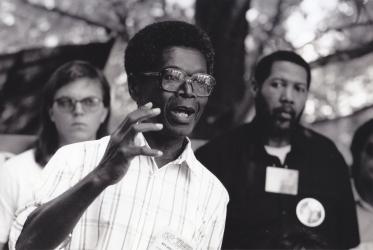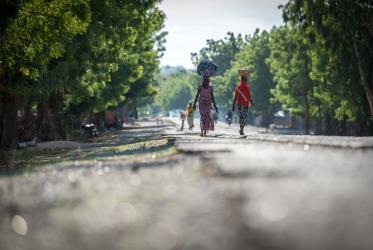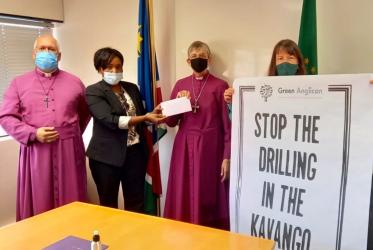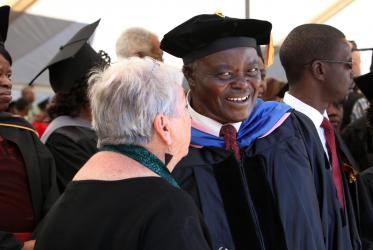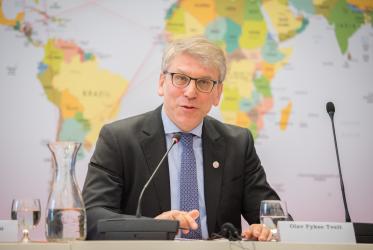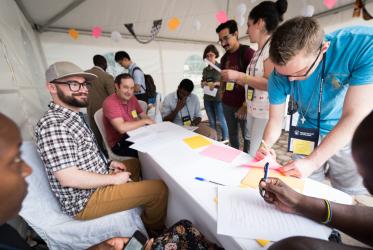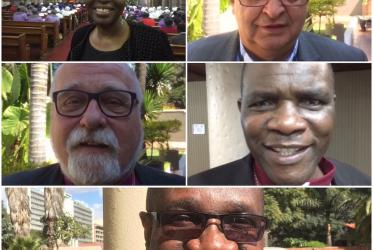Displaying 1 - 20 of 22
Cameroon religious leaders call for peaceful resolution
26 January 2023
World mourns loss of Archbishop Desmond Tutu
30 December 2021
WCC remembers life of Patrick Matsikenyiri, a joyful song leader
15 February 2021
WCC condemns attacks during violent week
25 April 2018
‘Sokoni’ transforms marketplace into mission
13 March 2018
Voices from a solidarity visit to Zimbabwe
25 May 2017
G7 must address famine
22 May 2017
Religion: Way of war or path to peace?
30 June 2016
WCC conference explores ecological injustice in Uganda
21 April 2016
Weaving together personal faith and climate change
23 September 2014
